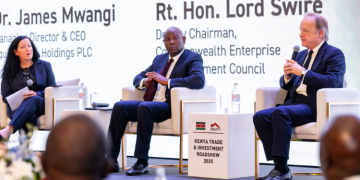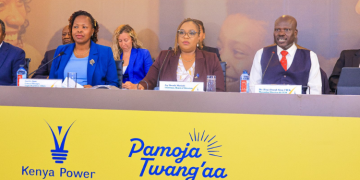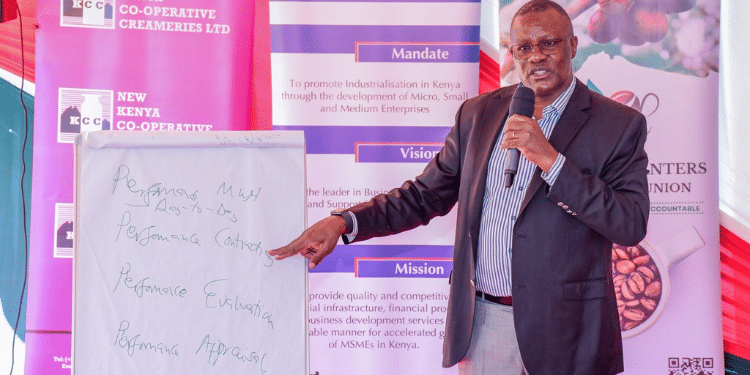The Deputy Chief of Staff in charge of Performance and Delivery Management at the Executive Office of the President Eliud Owalo has proposed a performance-based management model to link government funding and rewards to tangible results.
Owalo was speaking during a ministerial performance review retreat hosted by the Ministry of Cooperatives and Micro, Small and Medium Enterprises (MSMEs) in Nanyuki on Tuesday May 20.
“Government organizations will now be required to demonstrate tangible results in line with their mandates,” Owalo declared.
“A reward and sanction regime will be introduced to incentivize high-performing institutions; those that excel will receive increased budget allocations, while underperformers will face sanctions.”
He said the reward management framework will link recognition and incentives directly to performance outcomes, further encouraging a results-oriented culture in the public sector.
Also Read: Kenyans Should Be Ready to Pay More Taxes- Treasury PS Kiptoo
Owalo stressed the importance of strategic planning, warning, “You must have a strategic plan. Without a strategic plan, you’re leaving everything to chance and are likely to fail.”
MDAs are to finalize their strategic plans and service charters by June 30, 2025, and the next round of performance contracts covering the 2025/2026 financial year should be signed by July 1, 2025, and must align with each institution’s annual work plan.
He also highlighted midterm reviews of five-year plans to refine priorities for the remaining 2.5 years of the Kenya Kwanza administration’s term.
“These reviews are essential for helping ministries refine priorities, recalibrate strategies, and ensure high-impact delivery over the remaining two and a half years of the current planning cycle,” he noted.
The proposal supports Kenya’s Vision 2030, the Fourth Medium-Term Plan, and the Bottom-Up Economic Transformation Agenda (BETA), aiming for efficient resource use and economic growth.
Cabinet Secretary for Cooperatives, Wycliffe Oparanya supported Owalo’s sentiments, prioritizing on the importance of prioritizing the remaining two and a half years of the Kenya Kwanza administration.
“We must leave a mark. We have selected six key focus areas – three in MSMEs and three in cooperatives,” Oparanya said.
Also Read: Health Budget Crisis: Ksh67 Billion Budget Cut Threatens Reforms
Oparanya also said a major focus will be reviving the coffee sector, which he described as “our gold and a pillar of economic recovery.”
He also confirmed that the Coffee Act is undergoing review, alongside ongoing amendments to the Cooperatives Act, currently before the Senate.
All ministries, departments, and agencies (MDAs) are now expected to operate with time-bound, measurable targets.
Globally, performance-based management has succeeded in countries like Singapore and New Zealand, where clear metrics and incentives drive efficiency. Kenya’s adoption of this model, if well-executed, could position it as a regional leader in governance reform.
Recognizing the financial constraints facing many MDAs, Mr. Owalo challenged institutions to leverage their strategic plans as tools for resource mobilization. “Use your plans to attract funding from partners and investors. Be creative. Don’t rely solely on the National Treasury,” he urged.
Follow our WhatsApp Channel and X Account for real-time news updates.













































































